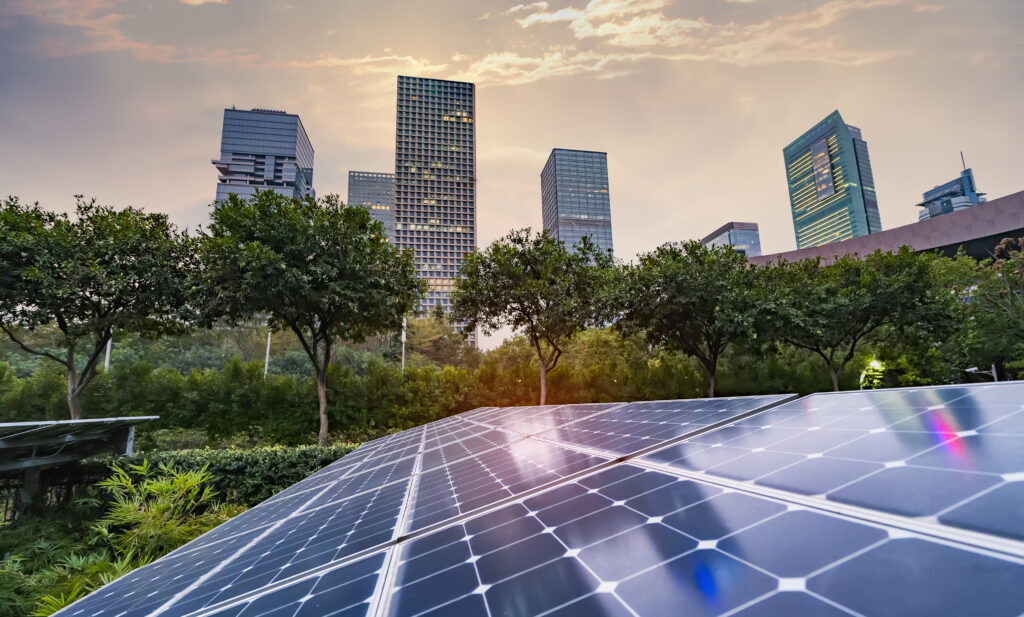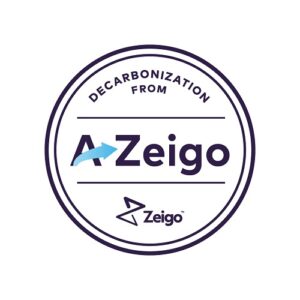Decarbonization isn’t just about helping the planet, it also benefits your bottom line.
If you’re a business wondering whether to begin your decarbonization efforts, the answer is a resounding “yes.” Not just because it’s a current global trend, or beneficial to brand reputation, or the “right thing to do,” but because it costs you NOT to decarbonize. In more ways than you might think.
What is decarbonization?
Have you put up the “don’t forget to turn off the light” reminder in your offices yet?
Great, that’s an initial step. But decarbonization extends beyond switching off the lights or reducing electricity consumption.
Decarbonization includes:
- Energy efficiency improvements
- Renewable energy adoption
- Carbon offsets
- Sustainable practices and material use
- Supply chain management
From maintaining cost stability and attracting top talent, to unlocking new markets and sparking innovation, decarbonization’s benefits goes beyond numerical value.

Decarbonization saves on energy cost
Greater energy efficiency is often the first move towards decarbonization for many companies. Whether that includes adopting new technologies, reducing heating, or unplugging unused electronics to decrease energy consumption for lower utility costs and operational expenses.
However, there are varying degrees of energy efficiency, and the greater the depth of energy efficiency you achieve, the bigger your cost savings. Measuring and tracking energy use is key for cost savings, and software like Zeigo Activate, can track energy spend, display data simply, and recommend relevant energy efficiency projects to deploy.
Maintaining and cleaning machinery better so that it’s more efficient, investing in a programmable thermostat, or preventative machinery maintenance could also contribute to energy efficiency and cost savings at a deeper level.
Taking it a step further, using sustainable building materials, which significantly contributes to decarbonization, also promotes energy efficiency. That means that you can lower the carbon emissions from construction, and over time the energy consumption saved will pay back the greater initial cost.
Decarbonization fosters long-term cost stability
Transitioning to renewable energy sources is key to decarbonization. It also benefits your bottom line in the long-term, given renewable energy’s cost stability, relative to non-renewable alternatives.
With greater cost stability, your finance team can budget and plan more accurately, with less necessary risk mitigation. Accordingly, more stability in expenses can also help you source better financing options.
Therefore, while shifting to renewable energy sources may cost in time and money at the start, the long-term pay-off benefits your budget.
Decarbonization attracts and keeps the best talent
More than ever, employees are looking to join brands with a purpose, working towards making our world better. Long gone are the days where people are simply satisfied with a salary.
If you’re a company who makes genuine efforts towards sustainability and decarbonization, not only will you attract the best talent, but you will also retain it. In 2021, research showed that 53% of the UK’s workforce say sustainability is an important factor in choosing a company to work for.
Employee engagement in decarbonization efforts can increase collaboration and motivation. In turn, that benefits your business. The cost of replacing an employee in the UK can reach upwards of £30,000 (re-training and recruitment costs). That’s a hefty business cost to potentially undertake, by not making genuine efforts towards decarbonization.

Decarbonization unlocks new markets
A recent study by McKinsey NielsenIQ found that 78% of US consumers say that a sustainable lifestyle is important to them, and their spending backs this up. Customers are paying increasing attention to the sustainability of the services and products they use.
Therefore, your company’s decarbonization can directly lead to new customer acquisition and avoid potential loss of customers moving towards buying from more sustainable companies. The further you take your decarbonization initiatives, the more you can promote your efforts, and boost your brand’s reputation. While reputation doesn’t have a line on your balance sheet, its value as an intangible asset is clear.
“Smart companies now treat sustainability as innovation’s new frontier”.
This innovation undoubtedly helps companies stay ahead of the competition, along with benefiting their bottom line.
Decarbonization can provide tax benefits
As governments globally push further to fight the climate crisis, they’re also aligning policies with these goals. An increase in legislation providing tax benefits and subsidies for reduced emissions means that investing in decarbonization can reduce your tax fees.
For example, the United States’ Inflation Reduction Act offers subsidies or tax credits for businesses investing in renewable energy technologies. Eligible taxpayers can deduct a percentage of the cost of renewable energy systems from their federal taxes.
Decarbonization benefits you
Decarbonization is often solely seen as “doing the right thing for the planet.”
Decarbonization is indeed the right thing for the planet, but also for your business. Through cost savings and stability, employee retention, innovation, new customer acquisition, and potential tax benefits, decarbonization directly and indirectly benefits your bottom line.
Decarbonization doesn’t have to be complicated
Decarbonization is also often misconstrued as being overly complicated. Decarbonization doesn’t have to be complex. You don’t have to be a big corporation to decarbonize.
At Zeigo, we help companies of all sizes reduce their carbon emissions through our sustainability software suite. No matter your company size, we partner to make your decarbonization journey smooth and impactful.
Zeigo Activate specializes in supporting companies in their decarbonization journey. The software allows you to track progress, set decarbonization goals, get a customized project roadmap, and reduce your carbon emissions.
Ready to decarbonize your business?
